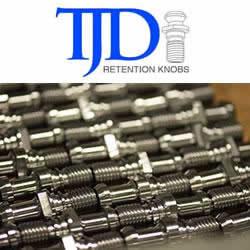WPI to Play Critical Role in National Manufacturing Initiative
University is a participating member in eight Manufacturing USA institutes; Each institute to be awarded $70 million in federal funds, which must be matched with non-federal support
Worcester, Mass. - April 10, 2017 - Worcester Polytechnic Institute (WPI) today announced it is now a member of eight far-reaching institutes that fall under a public-private partnership known as Manufacturing USA. The partnerships build upon WPIs 150-year commitment to advancing manufacturing.
"Manufacturing USA is all about establishing new pathways for academia and industry to partner on applied research and advanced workforce skills," said Mike Molnar, director of the Advanced Manufacturing National Program Office (AMNPO), an interagency team that operates the Manufacturing USA network and is headquartered in the U.S. Commerce Departments National Institute of Standards and Technology (NIST).
"Each institute is a public-private partnership where our academic partners are critically important in bridging the gap from lab to market. Were grateful to Worcester Polytechnic Institute for its participation as a partner in eight manufacturing innovation institutes, which demonstrates both an impressive breadth of experience with advanced manufacturing research and a commitment to Manufacturing USA that we truly appreciate."
WPI President Laurie Leshin said the universitys leading role with Manufacturing USA is in keeping with its heritage. "WPI was founded more than 150 years ago to support education and workforce development during the industrial revolution, and we look forward to driving innovation, career development, and other techniques to support 21st century manufacturing initiatives," she said.
The institutes are public-private partnerships, established with a five-year "start-up" cooperative agreement from a sponsoring federal agency. The typical institute award is $70 million, which must be at least 100 percent matched with non-federal support. Overall, industry and other non-federal sources have invested twice as much in the program as has the federal government. Sponsoring agencies include the Department of Defense, Department of Energy, and Department of Commerce.
Bogdan Vernescu, vice provost for research at WPI, noted that federal agencies issued a call for proposals for the institutes over the past several years. In turn, WPI partnered with other academic institutes to answer the need and were named on the winning proposals.
Vernescu said it is unknown at this point how much money WPI will receive in the process, but that its involvement holds promise. "Participation in these institutes will contribute to the growth in our research funding and lead to regional economic development," he said.
He added that the partnerships are key for success. "Were eager to partner with industry and other universities to develop solutions and products that transform manufacturing in the United States. WPI has the ingenuity and expertise to make a significant impact nationally," said Vernescu.
WPI will be a member of the following institutes that cut across multiple disciplines:
• Lightweight Innovations for Tomorrow (LIFT), according to Manufacturing USA, "is working to develop and deploy advanced lightweight materials manufacturing technologies." LIFT, created in 2014, is the first institute with which WPI was involved.
• Advanced Integrated Manufacturing in Photonics (AIM) "is working to accelerate the transition of integrated photonic solutions from innovation to manufacturing-ready deployment in systems spanning commercial and defense applications."
• Clean Energy Smart Manufacturing Innovation (CESMI) "works to spur advances in smart sensors and digital process controls."
• Rapid Advancement in Process Intensification Deployment (RAPID) convenes companies, universities, and labs "…to focus on new technologies" that conserve energy and creates savings.
• National Institute for Innovation in Manufacturing and Biopharmaceuticals (NIIMBL) "is working to enable more efficient and flexible manufacturing capabilities" and "develop a world-leading biopharmaceutical manufacturing workforce."
• Advanced Regenerative Manufacturing Institute (ARMI) seeks to "make practical the large-scale manufacturing of engineered tissues and tissue-related technologies."
• Reducing Embodied-energy and Decreasing Emissions (REMADE) "seeks to find new and less expensive ways to reuse, recycle, and remanufacture metals, fibers, polymers, and electronic waste."
• Advanced Robotics Manufacturing (ARM) aims to create new robotic technology "to realize the promises of a robust manufacturing innovation ecosystem."
To read a Q&A with Bogdan Vernescu about WPIs role with manufacturing, visit WPIs "Advancing Manufacturing" page.
About Worcester Polytechnic Institute
Founded in 1865 in Worcester, Mass., WPI is one of the nations first engineering and technology universities. Its 14 academic departments offer more than 50 undergraduate and graduate degree programs in science, engineering, technology, business, the social sciences, and the humanities and arts, leading to bachelors, masters and doctoral degrees. WPI's talented faculty work with students on interdisciplinary research that seeks solutions to important and socially relevant problems in fields as diverse as the life sciences and bioengineering, energy, information security, materials processing, and robotics. Students also have the opportunity to make a difference to communities and organizations around the world through the university's innovative Global Projects Program. There are more than 40 WPI project centers throughout the Americas, Africa, Asia-Pacific, and Europe.
Featured Product

T.J. Davies' Retention Knobs
Our retention knobs are manufactured above international standards or to machine builder specifications. Retention knobs are manufactured utilizing AMS-6274/AISI-8620 alloy steel drawn in the United States. Threads are single-pointed on our lathes while manufacturing all other retention knob features to ensure high concentricity. Our process ensures that our threads are balanced (lead in/lead out at 180 degrees.) Each retention knob is carburized (hardened) to 58-62HRC, and case depth is .020-.030. Core hardness 40HRC. Each retention knob is coated utilizing a hot black oxide coating to military specifications. Our retention knobs are 100% covered in black oxide to prevent rust. All retention knob surfaces (not just mating surfaces) have a precision finish of 32 RMA micro or better: ISO grade 6N. Each retention knob is magnetic particle tested and tested at 2.5 times the pulling force of the drawbar. Certifications are maintained for each step in the manufacturing process for traceability.
